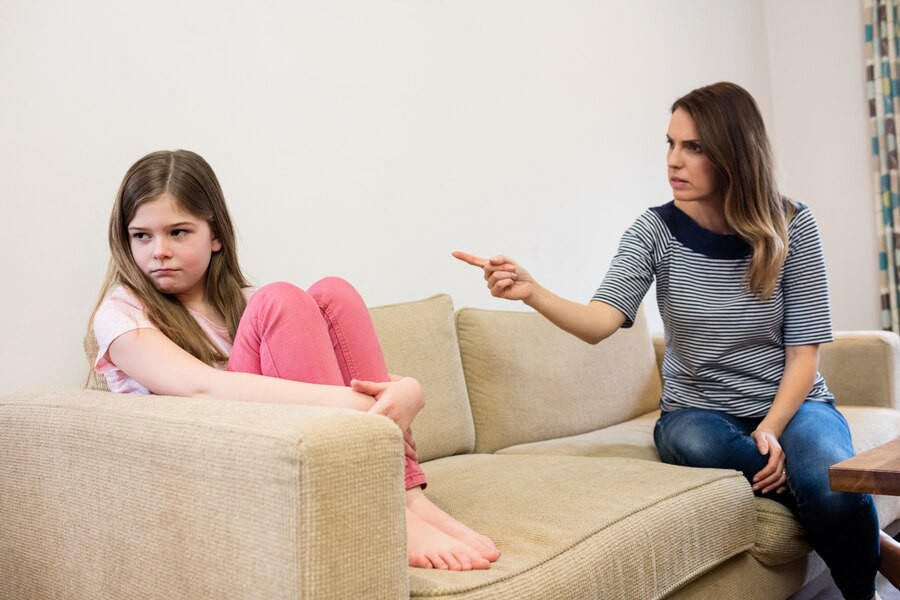Mother wound adalah istilah yang menggambarkan luka emosional yang diturunkan dari ibu kepada anak. Kondisi ini seringkali disebabkan oleh pola asuh yang tidak sehat atau trauma yang dialami sang ibu.
Mother wound bisa berpengaruh besar terhadap masa depan, seperti merasa rendah diri, cenderung tidak percaya orang lain, cenderung berusaha memenuhi harapan orang lain, kesulitan mengatur emosi, atau masalah kesehatan mental.
Apa itu Mother Wound?
Mother wound merupakan pengalaman yang cukup umum dan banyak dialami sebagian orang. Fenomena ini berkaitan dengan pengalaman negatif, trauma, atau pola perilaku tidak sehat yang diwariskan antar generasi.
Mother wound bisa timbul karena berbagai hal di antaranya:
Kekerasan emosional
Ibu yang sering melakukan kekerasan emosional terhadap anak seperti merendahkan, mengkritik berlebihan, atau mengabaikan kebutuhan emosional anak dapat menyebabkan luka yang mendalam.
Kurangnya perhatian dan kasih sayang
Ibu yang tidak mampu memberikan perhatian dan kasih sayang yang cukup dapat membuat anak merasa tidak dicintai dan tidak berharga.
Baca Juga: Mengenal Separation Anxiety, Saat Bayi Tidak Mau Jauh dari Ibu
Ibu yang dominan atau pasif
Ibu yang terlalu dominan atau pasif dapat memengaruhi keseimbangan dalam hubungan, yang berdampak pada perkembangan emosional anak.
Pengalaman trauma
Ibu yang mengalami trauma seperti kekerasan rumah tangga atau kehilangan orang yang dicintai mungkin tidak mampu memberikan dukungan emosional yang dibutuhkan anak.
Dampak Mother Wound bagi Kesehatan Mental
Mother wound dapat berdampak pada kehidupan masa depan. Dampaknya bisa kecil atau besar, dan sangat bervariasi tergantung pada luka emosional seperti apa, dan intensitas luka yang dialami.
Secara umum, mother wound dapat memberikan dampak sebagai berikut:
Rendah diri
Anak yang mengalami mother wound sering kali merasa rendah diri. Mereka mungkin tidak merasa berharga atau tidak layak mendapatkan cinta dan perhatian.
Kesulitan dalam hubungan
Luka emosional dari ibu dapat memengaruhi kemampuan seseorang untuk membentuk dan mempertahankan hubungan yang sehat. Mereka mungkin memiliki ketakutan terhadap penolakan atau kesulitan dalam mempercayai orang lain.
Baca Juga: Trauma Masa Kanak-Kanak yang Bisa Membentuk Pribadi Mudah Marah
Gangguan emosional
Mother wound dapat menyebabkan berbagai gangguan emosional yang memengaruhi kesehatan mental seseorang. Depresi, gangguan kecemasan, gangguan stres pasca trauma (PTSD), masalah identitas, dan harga diri berisiko dialami mereka yang mengalami mother wound.
Perilaku ekstrem
Anak yang mengalami luka dan trauma dari ibu cenderung menunjukkan perilaku yang ekstrem sebagai respons terhadap luka emosional yang mereka alami. Dua perilaku ekstrem yang sering muncul adalah menjadi terlalu patuh atau sebaliknya dan memberontak terhadap otoritas.
Perilaku ekstrem ini sering kali muncul karena anak merasa tidak didengar, tidak dihargai, atau tidak dicintai dengan cara yang mereka butuhkan. Anak yang terlalu patuh mungkin berusaha mendapatkan cinta dan persetujuan dengan cara mengorbankan diri sendiri, sedangkan anak yang memberontak mungkin merasa perlu menegaskan kemandirian dan identitas mereka dengan menolak otoritas yang mereka anggap tidak adil atau mengekang.
Pola perilaku yang tidak sehat
Pola perilaku yang tidak sehat sering kali menciptakan lingkaran setan yang sulit diputus, yang dapat memengaruhi generasi selanjutnya. Pola perilaku ini dapat meningkatkan risiko masalah kesehatan mental, menyebabkan hubungan yang bermasalah, serta kesulitan mengelola emosi.
Mengatasi mother wound tentunya tidak mudah. Pertama Anda perlu mengakui adanya luka emosional yang diturunkan dari ibu. Kesadaran ini dapat membantu memvalidasi perasaan tanpa menghakimi diri. Selanjutnya, cari dokter atau psikolog untuk berbicara tentang masalah Anda dan mencari strategi sehat untuk mengatasinya. Mereka dapat membantu Anda mengelola emosi, menerima masa lalu, dan memaafkan diri sendiri maupun ibu.
Memiliki pertanyaan lain terkait kesehatan mental? Anda bisa berkonsultasi dengan dokter kami melalui aplikasi Ai Care yang bisa diunduh di App Store atau Play Store.
Mau tahu informasi seputar penyakit lainnya? Cek di sini, ya!
- dr Nadia Opmalina
Rhona Lewis (2020). What Is the Mother Wound and How Do You Heal?. Available from: https://www.healthline.com/health/mother-wound
Sherry Gaba LCSW (2019). The Mother Wound. Available from: https://www.psychologytoday.com/us/blog/addiction-and-recovery/201910/the-mother-wound
Duygu Balan, LPCC (2023). Mending the Mother Wound. Available from: https://www.psychologytoday.com/us/blog/un-numb/202311/mending-the-mother-wound
US Department of Veteran Affairs. PTSD: National Center for PTSD. Available from: https://www.ptsd.va.gov/understand/related/depression_trauma.asp
Better Health Channel. Trauma and families. Available from: https://www.betterhealth.vic.gov.au/health/healthyliving/trauma-and-families
The National Child Traumatic Stress Network. Families and Trauma. Available from: https://www.nctsn.org/trauma-informed-care/families-and-trauma
Amy Marschall, PsyD (2024). Understanding Intergenerational Trauma and Its Effects on Mental Health. Available from: https://www.verywellmind.com/what-is-integenerational-trauma-5211898












